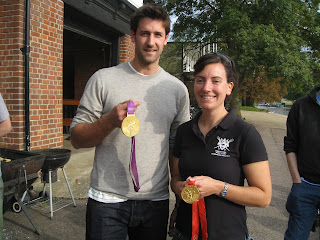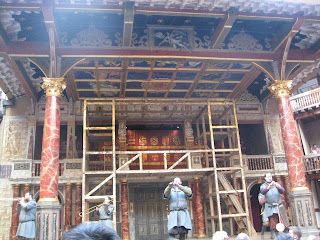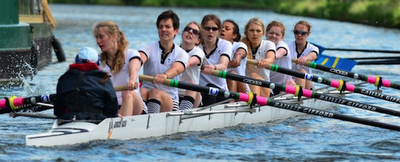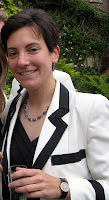Faff
This is the most useful word effver. It means general fuss and effort that is kind of necessary but annoyingly holds you up in trying to do what you actually want to do. For example, when you just want to get rowing and someone spends ages taking off their shoes, stuffing their jacket in the dry bin, and adjusting their seat -- that's faff.
Banter
Yes, we sort of have this in the U.S., but we use it more narrowly, for lighthearted back-and-forth talking. Amongst my Cambridge friends, it means this too, but more generally, having good banter also means having good chat; being a pleasant and interesting companion for an evening, especially an alcoholic evening.
Lurgy
According to the OED, 'Usu. in phr. the dreaded lurgy . A fictitious, highly infectious disease.' This was apparently coined by a radio program in the 1950s, but I've heard it used to remark on one's general malaise and feeling icky.
Kit
Athletic clothing, especially if decorated with your team's name (aka stash). I have acquired an increasing amount of black and white rowing kit, and a fair amount of Trinity Hall or other Cambridge stash.
Keen
Yes, Americans know what this means, but it's in abundant use for eager/interested/enthusiastic/supportive/involved.
Kit
Athletic clothing, especially if decorated with your team's name (aka stash). I have acquired an increasing amount of black and white rowing kit, and a fair amount of Trinity Hall or other Cambridge stash.
Keen
Yes, Americans know what this means, but it's in abundant use for eager/interested/enthusiastic/supportive/involved.
Now if only I could conjure more useful words to go into the conference paper I'm writing. Ages and ages ago, I submitted a proposal to talk on a panel about W.S. Gilbert (as in Gilbert & Sullivan); the first time, my paper was accepted but the panel didn't make it into the conference. A year later, the panel was guaranteed to happen, but I had to re-submit my proposal in case someone else had come up with a better idea in the meantime. After acceptance #2, I've had six months to anticipate speaking at the MLA, the biggest conference in the humanities. Here I am in the program:
It's an amazing opportunity. And I truly have nothing original to say on the topic I proposed. Seriously, it has all been covered. Heh. Well, with any luck, few people will come to the panel, and the other papers will get all the questions, and I'll escape with a nice line on my CV. But I have a knack for getting a lot of questions... I've found a perfect, hidden cubicle in the basement of the Stanford music library, and it's dead silent (finals just finished) and lacking all distractions. If ever I could work anywhere, this should be it. Wish me luck!






























